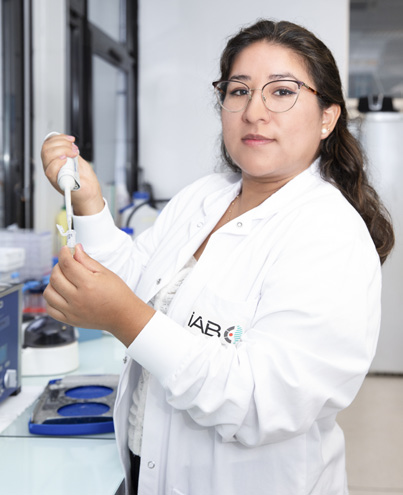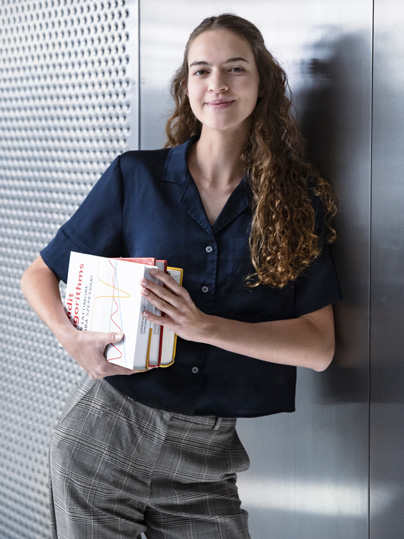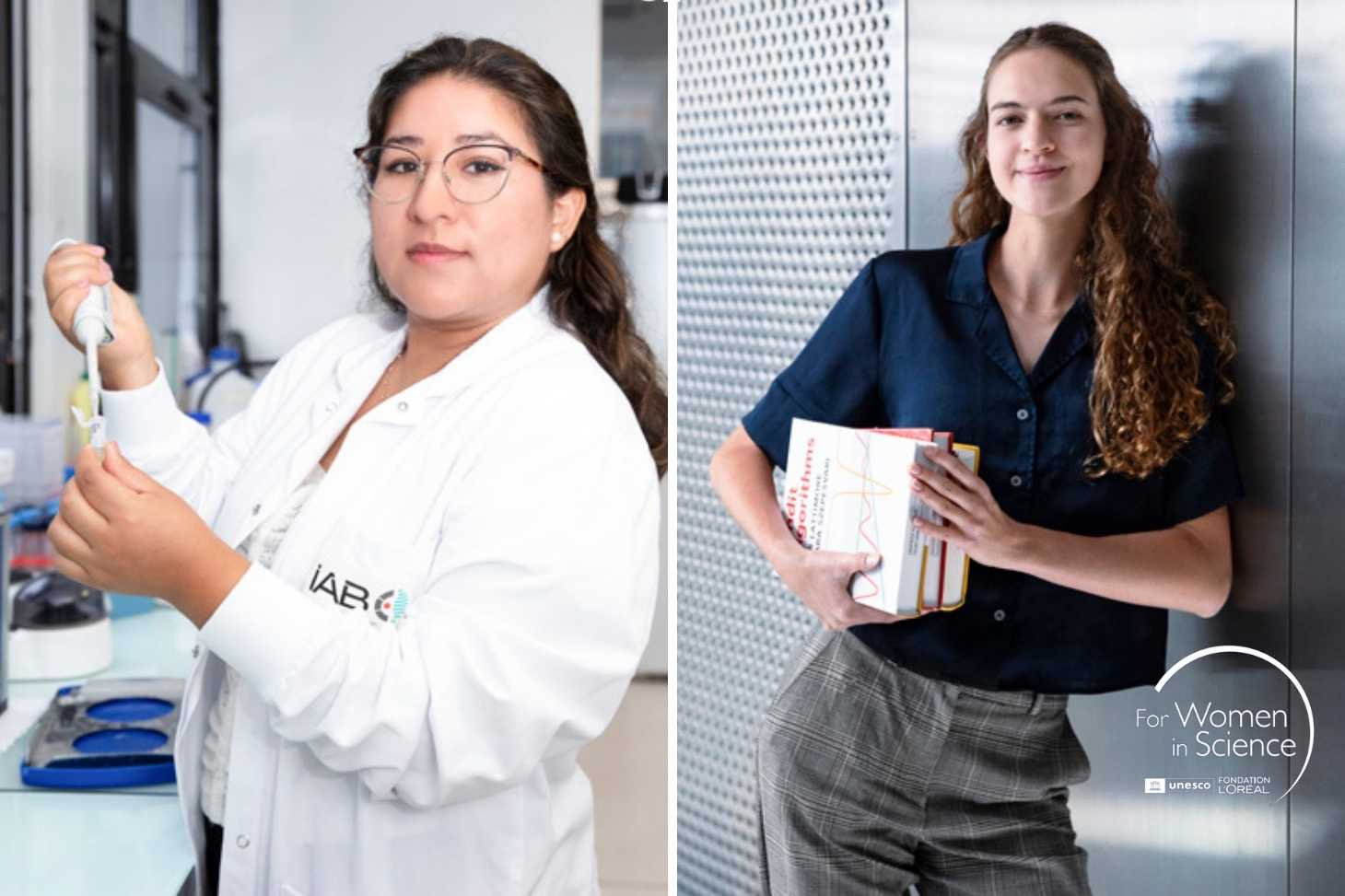On October 8, 2025, the L'Oréal Foundation, in partnership with the French Academy of Sciences and the French National Commission for UNESCO, announced the winners of the 19th annual L'Oréal-UNESCO For Women in Science Awards for Young Talents France 2025. Among the 34 doctoral and post-doctoral students honored, two UGA doctoral students stood out in the categories “Developing Therapies for the Future” and “AI and Modeling: Anticipating and Shaping the Future.”
Coming from all regions of metropolitan France and overseas territories and working in a variety of disciplines, the 34 young scientists honored at this 19th edition were selected from nearly 700 candidates by a jury of more than 30 members of the Academy of Sciences, representing excellence in scientific peer review. Biology, physics, chemistry, mathematics, computer science, engineering, earth and space sciences: in one or more of these fields, the winners have demonstrated remarkable expertise within various research organizations. They embody French scientific excellence and dedicate their research to building a more just and sustainable future.
For example, Nazareth Milagros Carigga Gutierrez is targeting pancreatic cancer with innovative nanoparticles, and Bianca Marin Moreno is guiding the energy transition with artificial intelligence. Both are doctoral students at UGA, the former at the
Institute for the Advancement of Biosciences (IAB - CNRS/Inserm/UGA) and the latter at
Laboratoire Jean Kuntzmann (LJK - CNRS/Inria/UGA – Grenoble INP-UGA).
Targeting pancreatic cancer with innovative nanoparticles

Originally from Peru,
Nazareth Milagros Carigga Gutierrez has always been driven by a desire to solve medical problems. After a demanding academic career and a decisive exchange program in France, she chose to continue her research there. Now a UGA doctoral student at
École doctorale Chimie et sciences du vivant, she is devoting her energy to the fight against pancreatic cancer. Her commitment to science is profound, driven by a desire to innovate.
What are the challenges and applications of your research?
My research aims to improve pancreatic cancer treatments by delivering drugs more precisely, attacking tumor cells while sparing healthy cells. This work is crucial, as pancreatic cancer remains one of the most difficult cancers to treat, with an urgent need for more effective therapies. This approach uses nanoparticles, tiny particles activated by light or X-rays, making it potentially applicable to various cancers. In the long term, I want to bridge the gap between research and clinical practice to make new therapies more accessible and understandable to patients.
Why did you choose a career in science?
My mother and sister passed on to me a love of learning and curiosity, encouraging me to push my limits, which fueled my interest in science. I first wanted to understand the human body, then I was drawn to biotechnology, exploring biology and chemistry in relation to medical applications. The turning point was a presentation on genetic engineering in middle school, which fascinated me and guided me toward this scientific path.
Have you encountered difficulties as a woman in your career?
Like many women, I often doubted myself, fearing that I wasn't smart enough. These doubts sometimes prevented me from asserting myself or speaking up. I also felt pressure related to judgment, which held me back from taking on responsibility. Nevertheless, this experience taught me to be strong in the face of challenges and to recognize the essential value of women in science. Our contribution is invaluable.
Guiding the energy transition with artificial intelligence

Originally from Brazil,
Bianca Marin Moreno was driven from an early age by a curiosity to solve the problems around her and answer questions about the world in order to better understand it. These questions naturally led her to study science. After earning a bachelor's degree in mathematical physics in Brazil, she enrolled at École Polytechnique in France. Fascinated by the power of applied mathematics and artificial intelligence, she specialized in this field. Currently working on her thesis at
École doctorale Mathématiques, Sciences et technologies de l'information, Informatique at Université Grenoble Alpes, her research is at the heart of the energy transition, a major challenge for our future.
What are the challenges of your research and its applications?
Energy is difficult to store, so maintaining a balance between production and consumption is crucial, especially with intermittent renewable energies. My research focuses on developing sequential learning algorithms, tools that exploit the flexibility of electricity demand. The aim is to create adaptive tools to manage this flexibility in real time, contributing to a smart, low-carbon electricity system. In practice, this makes it possible to optimize uses such as water heating or electric vehicle charging to adjust their consumption, balancing supply and demand without fossil fuels.
Why did you choose a career in science?
My initial choice for a career in science was unexpected. I enjoyed solving intellectual challenges and was fascinated by how mathematics explained the world. As I progressed, I was drawn to the desire to explore the unknown and collaborate with others. A discussion with a friend and the discovery of the creative aspect of science convinced me. I realized that mathematics and physics enable innovation and are essential to technological advances, constantly broadening perspectives.
In your career, have you encountered any difficulties as a woman?
Although I haven't encountered any direct difficulties, the underrepresentation of women in mathematics can unconsciously make it more difficult for a woman to envision herself in a career or feel that she belongs there. In predominantly male environments, I have sometimes found it difficult to be taken seriously and felt that I was being criticized for being confident, whereas a man would have been valued for this quality. However, my scientific competence stems from my research, not my appearance. More and more women are pursuing careers in science, paving the way for a more inclusive science that is more representative of society.
« Once again this year, the Academy of Sciences is drawing on the expertise of its distinguished members to identify rising stars in science. Women represent half of humanity, but remain underrepresented in leadership positions in research. Imposter syndrome, a culture of competition, domestic inequalities, and many other obstacles unfairly exclude talented individuals who are needed in science. The L'Oréal-UNESCO For Women in Science Awards for Young Talents in France, in partnership with the French Academy of Sciences, are a means of rebalancing opportunities and enabling scientific culture to benefit from the full potential of this half of humanity.» says Prof.
Françoise Combes, President of the French Academy of Sciences and Chair of the 2025 Jury, herself a recipient of the 2021 L'Oréal-UNESCO For Women in Science International Award.
A community of 4,700 women scientists worldwide
The award ceremony took place on October 8 in Paris at the headquarters of the French Academy of Sciences. Thanks to this award, the 34 Young Talents join one of the largest communities of women scientists in the world, with more than 4,700 researchers from over 140 countries. This is a valuable network for promoting scientific collaboration, inspiring and supporting each other in the face of obstacles. By awarding them a grant and supporting them through a leadership training program, the L'Oréal Foundation and its partners are reaffirming their unwavering commitment to the future of science and the place of women in these disciplines.
This Award is part of the L'Oréal-UNESCO “For Women in Science” program, created in 1998 and built on an intergenerational approach to help bridge the gender gap in science with:
- The International Award, which highlights the exceptional careers and research of women scientists, inspiring the next generation.
- The national and regional “Young Talents” programs, deployed in 140 countries, which support and encourage young female researchers at the local level.
- The “For Girls and Science” program, which encourages girls to pursue scientific careers.
Because the world needs science, and science needs women.


 Originally from Peru, Nazareth Milagros Carigga Gutierrez has always been driven by a desire to solve medical problems. After a demanding academic career and a decisive exchange program in France, she chose to continue her research there. Now a UGA doctoral student at
Originally from Peru, Nazareth Milagros Carigga Gutierrez has always been driven by a desire to solve medical problems. After a demanding academic career and a decisive exchange program in France, she chose to continue her research there. Now a UGA doctoral student at  Originally from Brazil, Bianca Marin Moreno was driven from an early age by a curiosity to solve the problems around her and answer questions about the world in order to better understand it. These questions naturally led her to study science. After earning a bachelor's degree in mathematical physics in Brazil, she enrolled at École Polytechnique in France. Fascinated by the power of applied mathematics and artificial intelligence, she specialized in this field. Currently working on her thesis at
Originally from Brazil, Bianca Marin Moreno was driven from an early age by a curiosity to solve the problems around her and answer questions about the world in order to better understand it. These questions naturally led her to study science. After earning a bachelor's degree in mathematical physics in Brazil, she enrolled at École Polytechnique in France. Fascinated by the power of applied mathematics and artificial intelligence, she specialized in this field. Currently working on her thesis at 